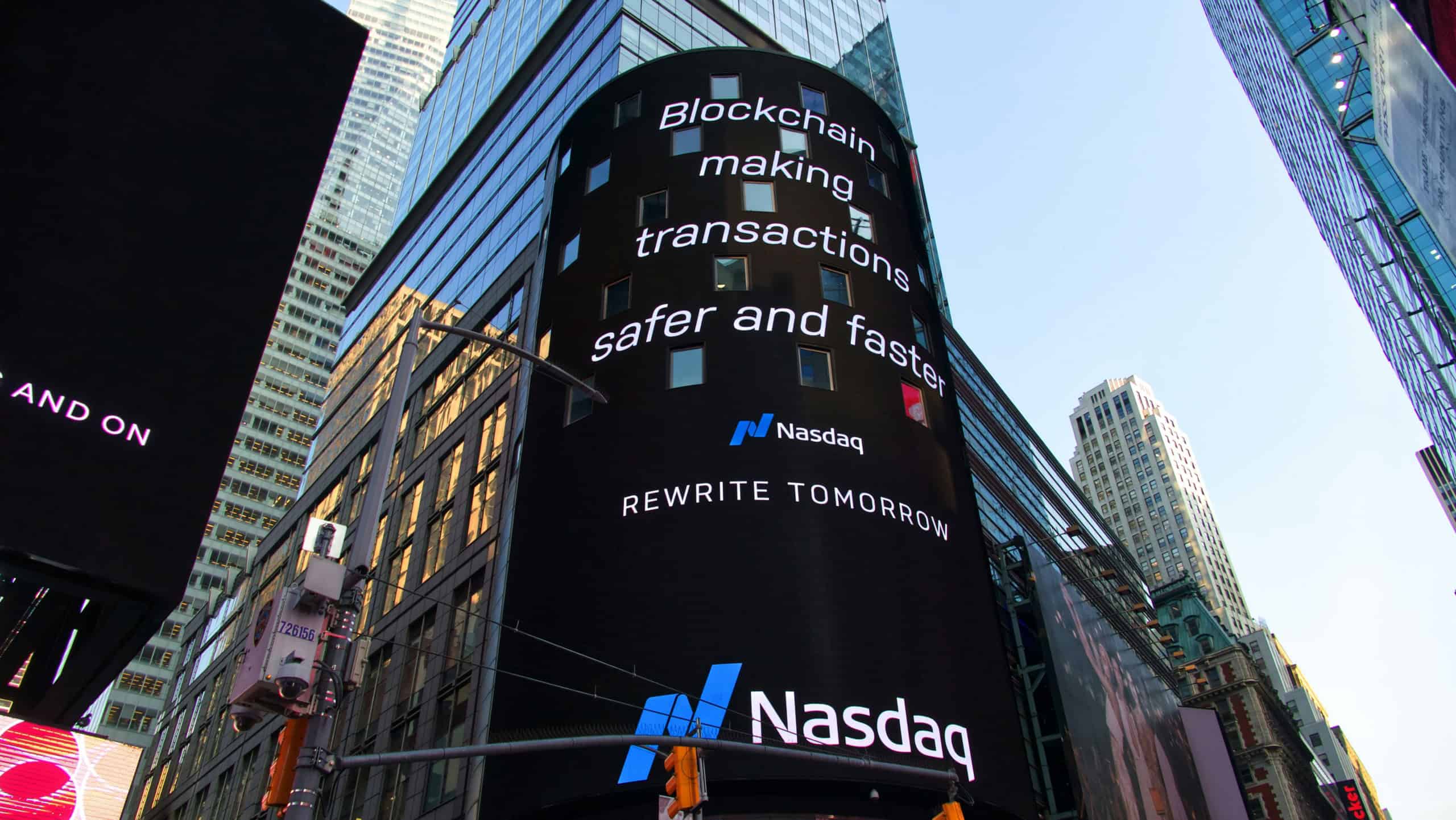How do Blockchain and Supply Chain Work Together?
What is Blockchain? Is it beneficial for the supply chain?
How to implement the technology? Are there any downsides? Read Details Here!
Table of content:
Technological advancements and accelerated manufacturing have impacted supply chain companies worldwide. For instance, drones monitor manufacturing, the Internet of Things (IoT) can carry out maintenance, and artificial intelligence and machine learning algorithms implemented in robots can take over quality control.
Technological innovations have historically caused problems for supply chain companies. For example, when personal/desktop computers were introduced in the 80s, supply chain companies had to shift dramatically from manual to semi-automated processes.
It wasn’t easy for businesses to align their operations with technology. However, many organizations adopted desktop computers for day-to-day business operations, such as word processing, database management, accounting, and spreadsheets for efficient supply chain and logistics planning.
Today, businesses focus on more agility, flexibility, and responsiveness to stay competitive in the industry. Companies that drive continuous innovation in their supply chain operations remain highly competitive in the market and improve their business’s overall bottom line.
Blockchain is a cutting-edge technology that promises to improve your company’s efficiency and transparency, streamlining the supply chain operations. Is this true? Does Blockchain align with the supply chain? Today’s article will highlight evidence-based information to help you make an informed decision. Read on!
Table highlighting the role of blockchain in supply chain management:
| Aspect | Key Insights | Value to Businesses |
|---|---|---|
| Transparency | Provides a tamper-proof record of transactions | Enhances trust and accountability |
| Traceability | Tracks product journey from origin to consumer | Improves quality control and compliance |
| Efficiency | Reduces paperwork and manual processes | Streamlines operations and lowers costs |
| Security | Uses encryption to protect sensitive supply chain data | Prevents fraud and unauthorized access |
Although Blockchain has many use cases and applications in the supply chain industry, we will give you the most common examples. Walmart is a reputable company that uses blockchain technology to track its food supply chain operations.
For instance, it uses technology to monitor the condition and quality of pork products imported from China. Walmart has successfully leveraged blockchain technology in its supply chain operations.
The company looks forward to implementing Blockchain in its lettuce and spinach supply chain. Another example of Blockchain in the supply chain industry is Bext360. According to Fortune.com, the company uses Blockchain to track its coffee trading.
It has implemented state-of-the-art blockchain software and applications to better track elements of coffee trading throughout the world. The technology synchronizes farmers, collectors, suppliers, distributors, and consumers.
Here are a few examples of how companies leverage Blockchain in their supply chain operations:
FedEx is a reputable shipping enterprise that uses Blockchain as a standardized ledger technology to streamline its operations. The company adopted Blockchain to track its shipments, store data on the platform, and rectify customer disputes.
United Parcel Service, also known as UPS, is another company that adopted Blockchain in 2018. UPS uses Blockchain in their logistic operations to increase transparency and enhance merchant supply chains.
In addition, UPS filed a patent for a blockchain system to store package destination, traveling data, movement, transportation method, and other information, ensuring transparency, efficiency, reliability, security, and cost-effectiveness.
De Beers is one of the most reputable diamond production companies and is famous for its premium-quality gems. But do you know this giant corporation uses blockchain technology to track its entire operation, from mining to retail counter? Yes, this is true. De Beers uses Blockchain to verify diamonds’ authenticity and reduce the risk of financial fraud.
Ford Motor Company announced in 2020 that it would incorporate Blockchain in its supply chain operations, particularly in cobalt supply. It is one of the essential ingredients of electric car batteries.
So, the company uses blockchain technology to track its raw materials from suppliers. The purpose is to ensure quality, track supply chain data, and monitor movements.

Modern supply chains experience friction that causes disruptions in supply chain operations. For instance, suppliers, providers, and consumers interact through third-party entities. The go-betweens lead to misinformation, lack of trust, and other complexities.
According to DHL, Blockchain in supply chain logistics ensures verified, recorded, and coordinated transactions. It eliminates third parties and ensures suppliers, distributors, and consumers directly interact with one another.
In addition, the technology enables logistics companies to streamline their operations via a public ledger system. It records the movements of each shipping container and allows you to use data analytics to implement faster routes.
The purpose is to mitigate risks, such as unnecessary steps in the delivery, reduce clerical errors, and decrease bottlenecks. Blockchain helps you eliminate these problems using “SMART Contracts.”
A distributed ledger plays a critical role in ensuring transparent recordings, efficient route information, and cost reduction. A recent study by PWC highlights that Blockchain combined with artificial intelligence, machine learning algorithms, and big data analytics will increase the global GDP by $1.76 trillion.
You can use blockchain technology to create an efficient system and track your products at micro levels. In addition, multiple businesses retailing food have hired IBM services to develop systems based on this technology to track food items.
According to a CNBC News article, Unilever, Nestle, and Walmart are popular companies that use IBM blockchain services to backtrack individual food items. Walmart has benefited from blockchain technology by tracking pork products and mangoes from China and Mexico to their origins.
The answer is yes. Blockchain is the future of the supply chain industry, ensuring transparency, reliability, efficiency, and cost-effectiveness. It will change the entire ecosystem, allowing companies to achieve their goals.
Blockchain offers companies immense opportunities, from cryptocurrency to financial services to product shipments. However, implementing Blockchain is not an overnight job and requires careful planning and preparation.
Blockchain will become a central point for change in the supply chain industry by 2030. The extensive network and fast data processing mechanisms offer many advantages to supply chain businesses. Here are a few reasons Blockchain is the backbone of the supply chain industry.
Global supply chains propel trillions of dollars of trade and commerce, contributing to the world economy. However, supply chains experience various issues, such as waste, fraud, human rights violations, inefficiencies, delays, and increased costs.
Although these problems do not heavily impact supply chain companies, it has devastating implication for society. For instance, smallholder farmers and producers do not receive their fair share of the value of products.
The issue is primarily due to the cost imposed by corrupt intermediaries. The good news is that when implemented correctly, Blockchain can bring transparency to supply chains and give consumers leverage to promote optimal standards of sustainability in production and sourcing.
It can also benefit small producers to receive their fair share and implement best practices to streamline the process. Blockchain provides a level playing field for all partners/participants of supply chains via the information on market conditions and data on pricing.
However, outdated organizational tools, data silos, accountability, deteriorated traceability, and a lack of transparency can cause problems in supply chains. Blockchain can eliminate these issues by providing companies with adequate solutions, allowing them to improve outcomes for everyone.
Moreover, Blockchain is an optimal solution for supply chains because technology provides unprecedented reliability and transparency. Blockchains are shared, decentralized database and encrypted structure that contains secure information stored on all nodes in the network.
Compared to conventional databases, a blockchain system verifies data entries or changes in the ledger using a cryptographic consensus, eliminating the need for third parties or intermediaries.
So this allows companies to perform peer-to-peer transactions, even if they don’t know or trust each other. For example, Ethereum and Bitcoin are public permissionless blockchain currencies/technologies, meaning anyone can access them via a computer.
You can also find layered or private blockchain applications with varying user access levels, depending on the company’s requirements and supply chain protocols defined by the administration. We recommend testing private blockchains to protect intellectual property and proprietary data.

Although Blockchain offers various advantages, companies’ most significant problem is implementing and using the technology according to their needs. Here are a few tips and tricks to achieve your goals.
Determining the feasibility means identifying a solid business case that dictates you to adopt and implement blockchain technology in the supply chain. It determines whether Blockchain is a suitable solution for your company.
Experts suggest evaluating your organization’s digital networks, performing readiness tests to assess processes and transactions, and focusing on areas that intersect digital readiness and optimal business value.
Avoid making a rush decision because it can lead to complications. Therefore, a wait-and-watch approach is ideal when implementing and scaling the blockchain platform further into your organization.
Blockchain technology in the supply chain requires a collaborative effort. It involves third-party contributors who upload, vet, and share data. We suggest finding reliable partners who want to leverage the power of Blockchain with you.
Blockchain implementation in the supply chain requires independent partners to embrace a new technology that offers initially limited value. Bear in mind that supply chain security problems are real because not all partners can upload accurate data.
Therefore, assembling partners require a careful and proactive approach with a primary focus on data accuracy. It is the entry point of the exercise to successfully implement Blockchain in the supply chain.
Planning is an integral part of implementing blockchain technology in the supply chain. It requires you to identify your organization’s goals, find the right product/platform, and implement it according to the protocols and standards. Consider the following factors:
If you want to make the most of Blockchain for supply chain operations, expect technological changes from time to time. Although the underlying blockchain architecture is critical, rapid changes can cause problems.
Therefore, keep an eye on the technological changes and modify your strategy accordingly. Consider what’s best for you and your partners in the supply chain. Although the blockchain market is massive, it has countless fragments.
Some platforms focus on privacy and confidentiality, while others believe in universal computing or tokenization. According to Computer World, most blockchain offerings are immature for supply chain companies.
Therefore, finding and implementing blockchain systems that support security, reliability, problem-solving features, and algorithms to align your company’s objectives with technological changes is critical.
While Blockchain is an excellent way to streamline supply chain operations, it also has downsides. Because supply chain information is confidential, private, and sensitive, a blockchain with no permission system can cause leak data.
However, a permissioned blockchain system is also less secure because it has fewer nodes, risking the decentralization feature of the technology. Although supply chain companies believe that no one can change data on the Blockchain, intentional misconduct or human error can cause data inaccuracy.
Moreover, blockchain solutions for supply chains may slowly process transactions more than conventional databases. The reason is that the technology validates the data on various computers and services.
Similarly, a permissionless blockchain solution is expensive, considering the high volume of transactions in the supply chain. Remember, you will have to pay the transaction fees every time you need miner nodes to create blocks on the network.
Blockchain has been touted as an advanced technology to improve modern supply chain structures and functions, ensuring trust, transparency, and efficiency. However, Blockchain is not a complete solution for supply chain issues.
While you can benefit from this technology, it has several downsides. Therefore, solely relying on Blockchain is not ideal because this can reduce your company’s competitive advantage in the market.
We recommend following a hybrid approach that combines traditional and modern technologies, including databases, spreadsheets, word processing, big data analytics, artificial intelligence, machine learning, predictive modeling, web applications, etc. Contact us today for more information!

 The Ultimate Guide to Supply Chain Network Optimization
The Ultimate Guide to Supply Chain Network Optimization